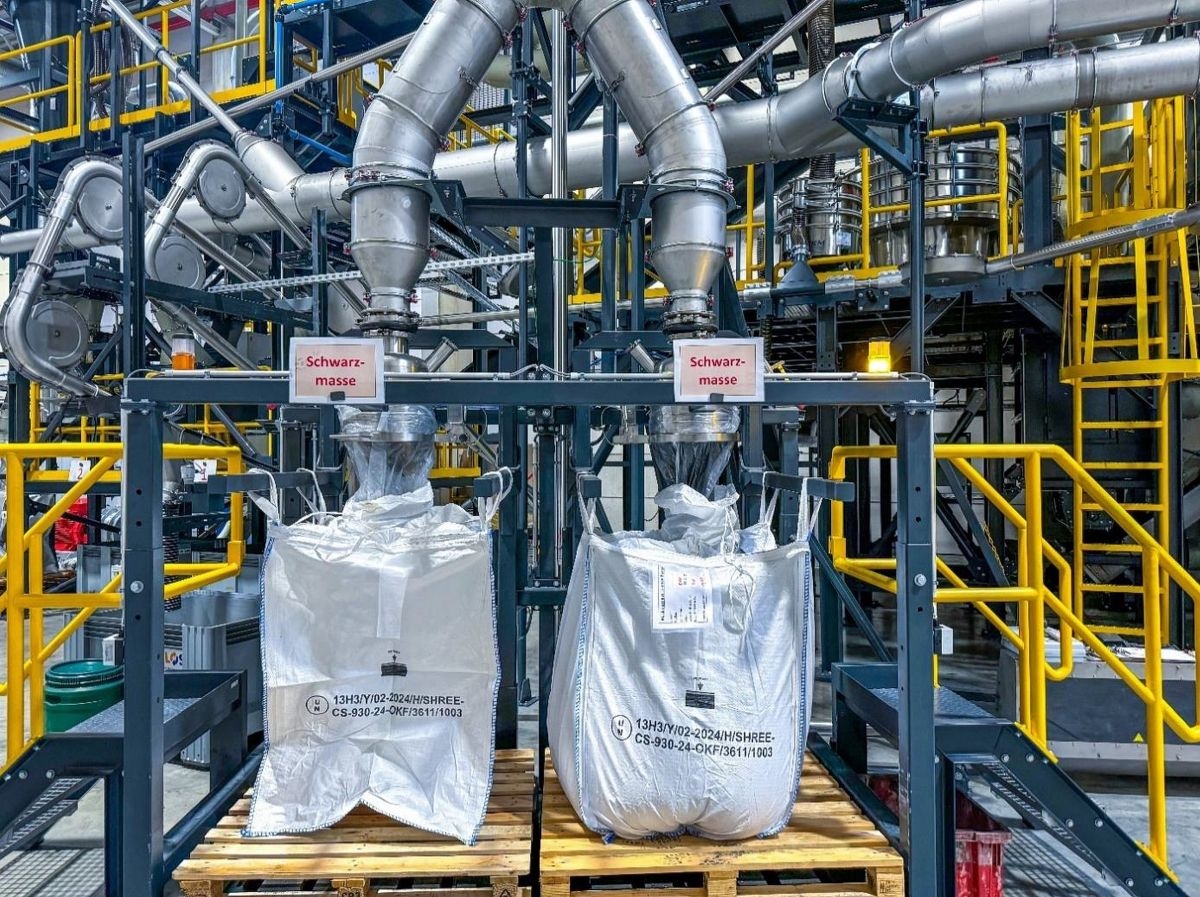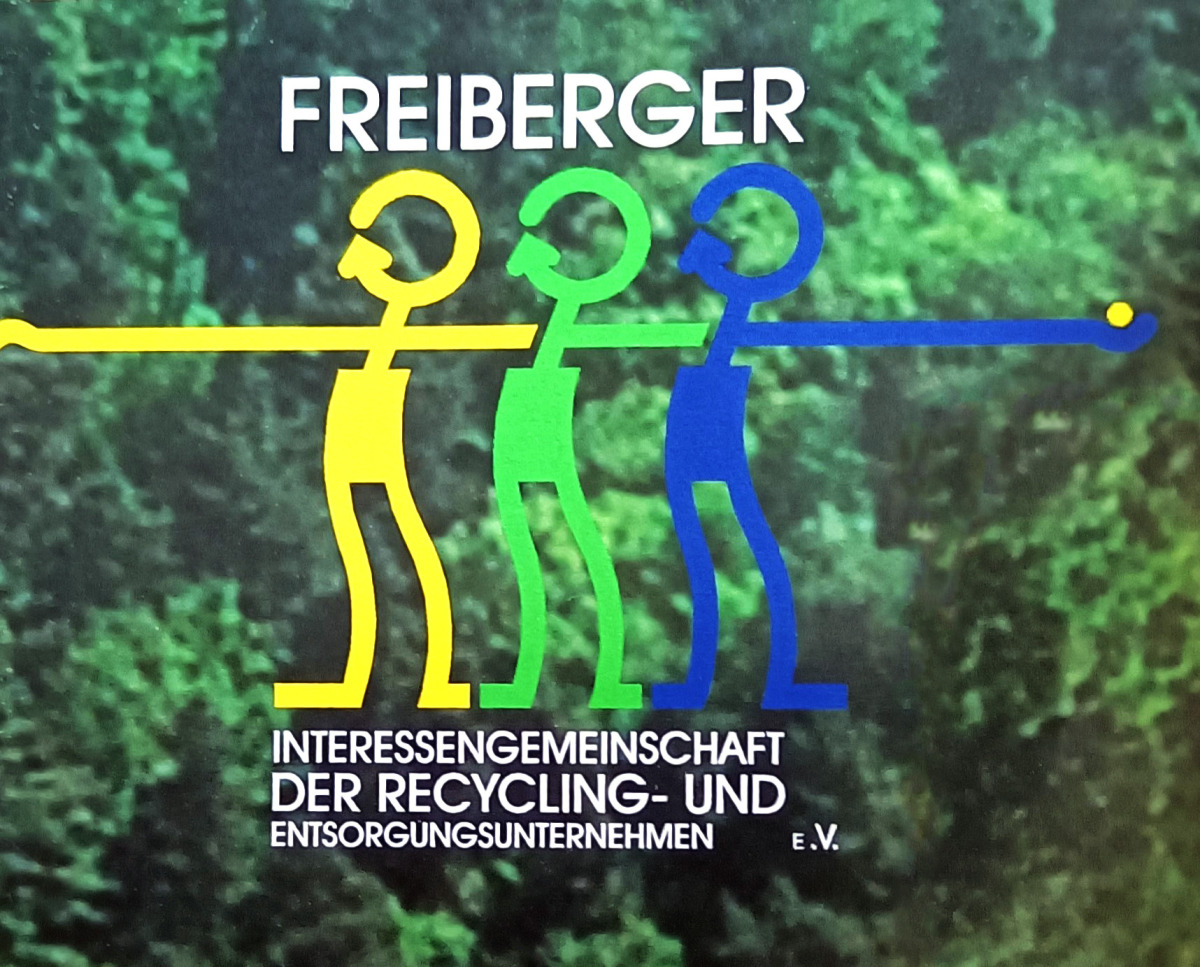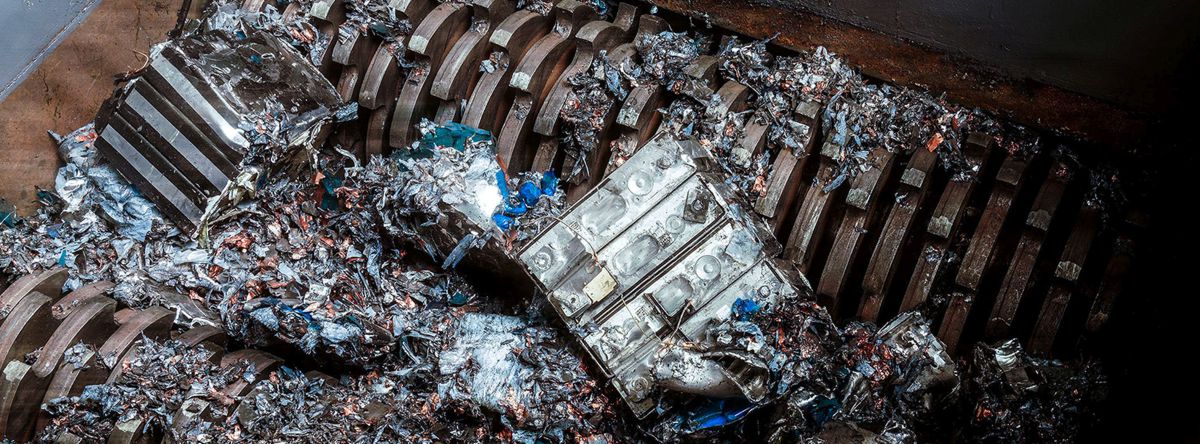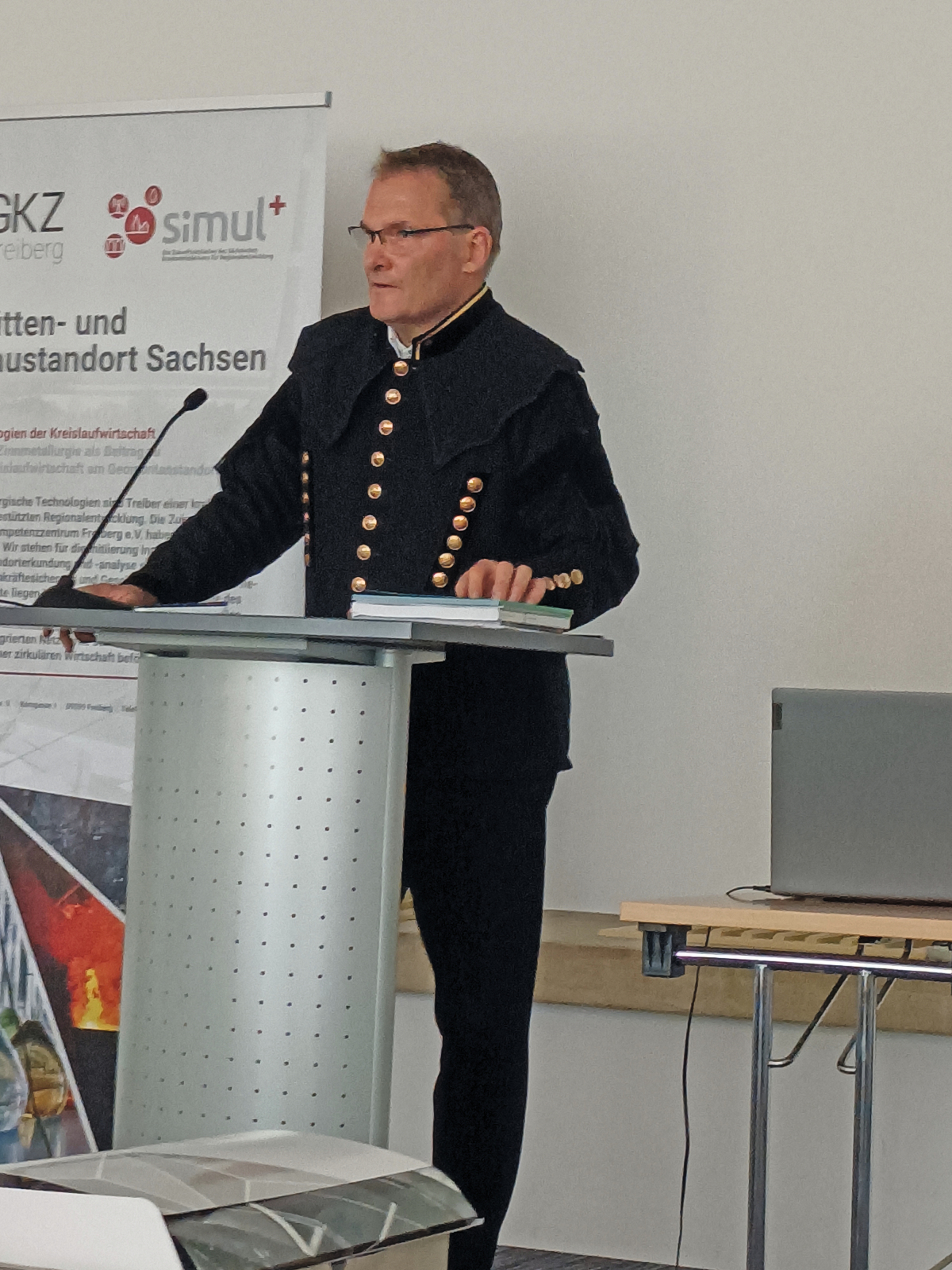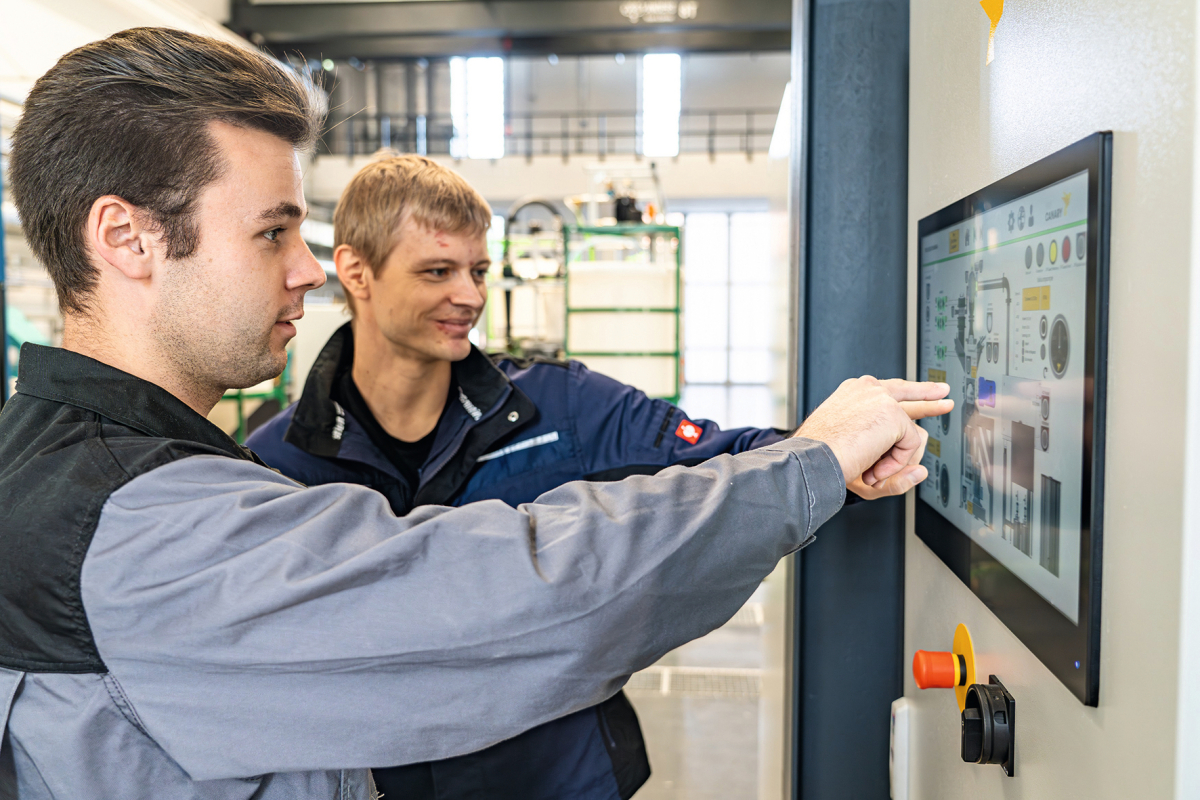Saxony's Minister President Kretschmer visits ERLOS
23.07.2024On July 22, 2024, Saxony's Minister President Michael Kretschmer attended the opening of the new battery recycling plant of WP subsidiary ERLOS Produktion und Montagen as a guest of honor. The participants agreed on the importance of electromobility for the transport transition and the importance of recycling used electric car batteries.
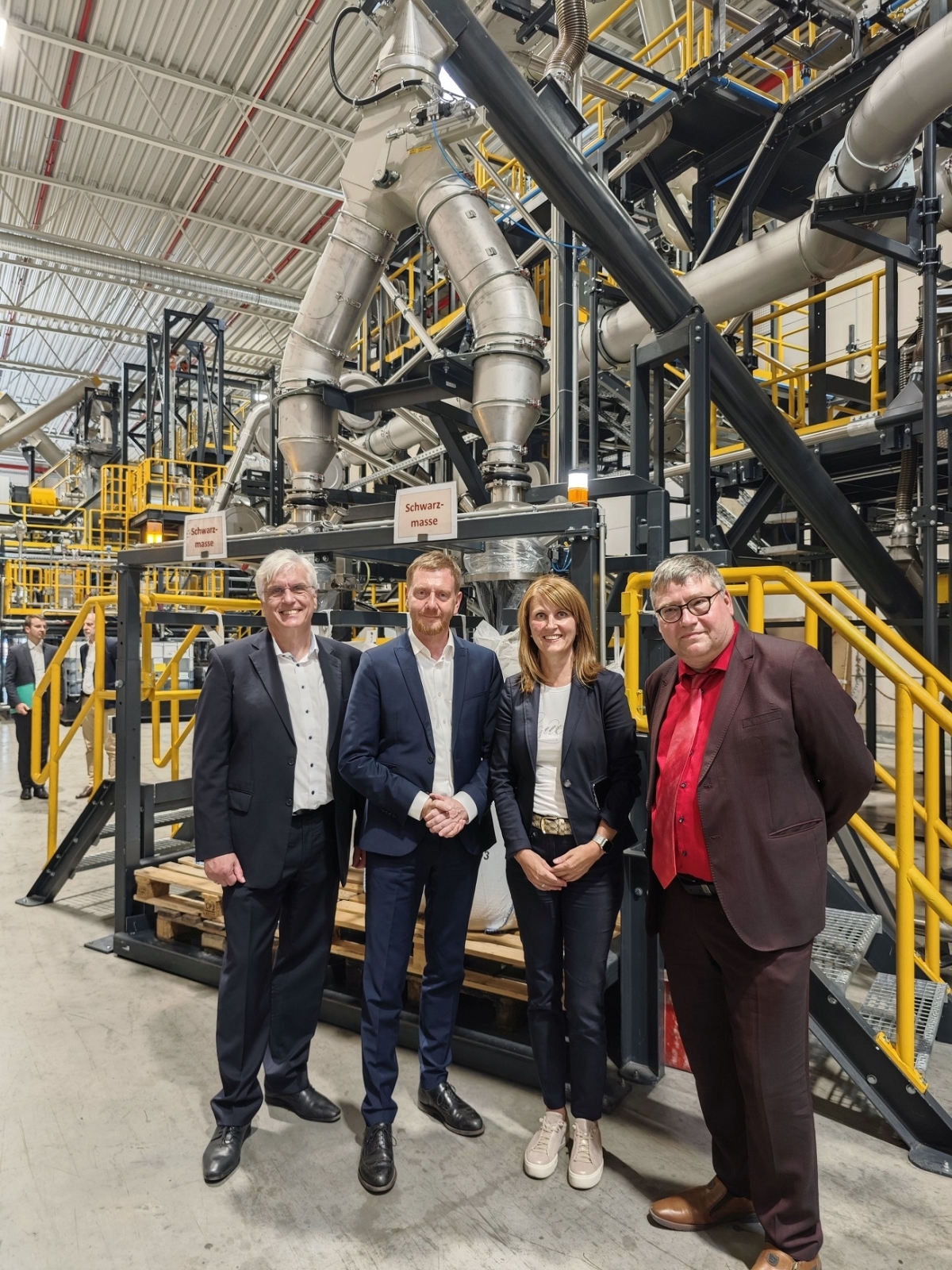 Saxony's Minister President Michael Kretschmer in front of the new battery recycling plant between the management of WP Holding, Doreen Paesold-Runge and Heiko Nowak. Next to him is the Managing Director of ERLOS Produktion und Montagen, Dr. Matthias Schmidt
Saxony's Minister President Michael Kretschmer in front of the new battery recycling plant between the management of WP Holding, Doreen Paesold-Runge and Heiko Nowak. Next to him is the Managing Director of ERLOS Produktion und Montagen, Dr. Matthias Schmidt
© WP Holding
Minister President Michael Kretschmer was impressed by the creative power of Saxony's SMEs and assured them that he would continue to listen to their wishes and concerns. “Saxony is a land of innovation. The investment in the new Li-ion battery recycling plant is an important step towards the further development and acceptance of electromobility. In addition, a functioning circular economy is the basis for future-oriented value creation.” The plant in Schönfels, Saxony, which went into operation in July 2024, was built for 9 million € in just under eight months. The plant can recycle around 3500 tons of batteries from automotive sources annually in two-shift operation. Dr. Matthias Schmidt, Managing Director of Erlos, looked back proudly on the past years and the continuous growth.
Michael Kretschmer agreed with the management of WP Holding and ERLOS that funding practices at federal level must take greater account of medium-sized companies and their interests in order to enable further innovations “Made in Saxony”. Dr. Matthias Schmidt used the Minister President's visit to make a clear appeal to politicians, from the federal to the local level: “One of the most urgent problems facing SMEs is the increasing number of statistical verification requirements every year, which unnecessarily prolong business processes.” The Erlos Managing Director also explained: “The Saxon economy in particular also suffers from the considerable differences in funding practices compared to nearby countries, especially Poland and Hungary. The funding amounts are completely different there, which puts us at a clear competitive disadvantage.”
Doreen Paesold-Runge, Managing Director of WP Holding, also pointed out the problems and difficulties of the German and European funding guidelines. “We are extremely pleased about the Prime Minister's renewed visit and the continued exchange at all levels, especially with the new head of the State Chancellery, Mr. Clemens,” she explained.

